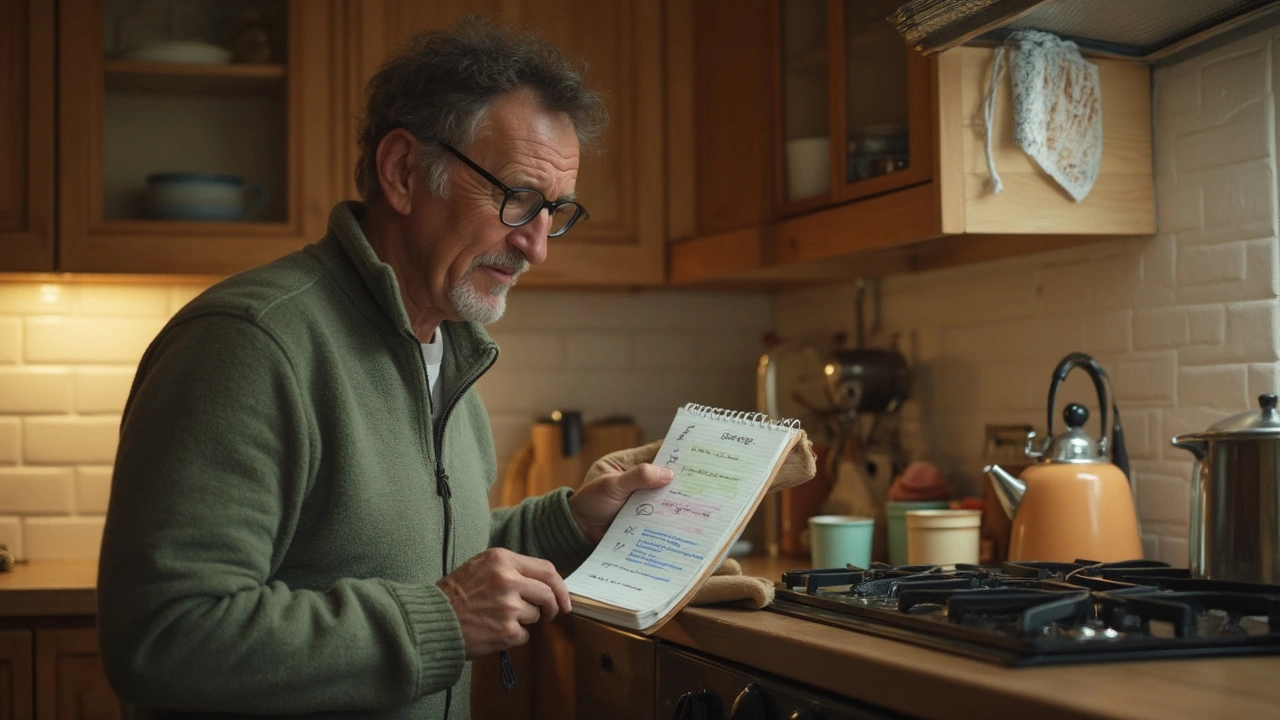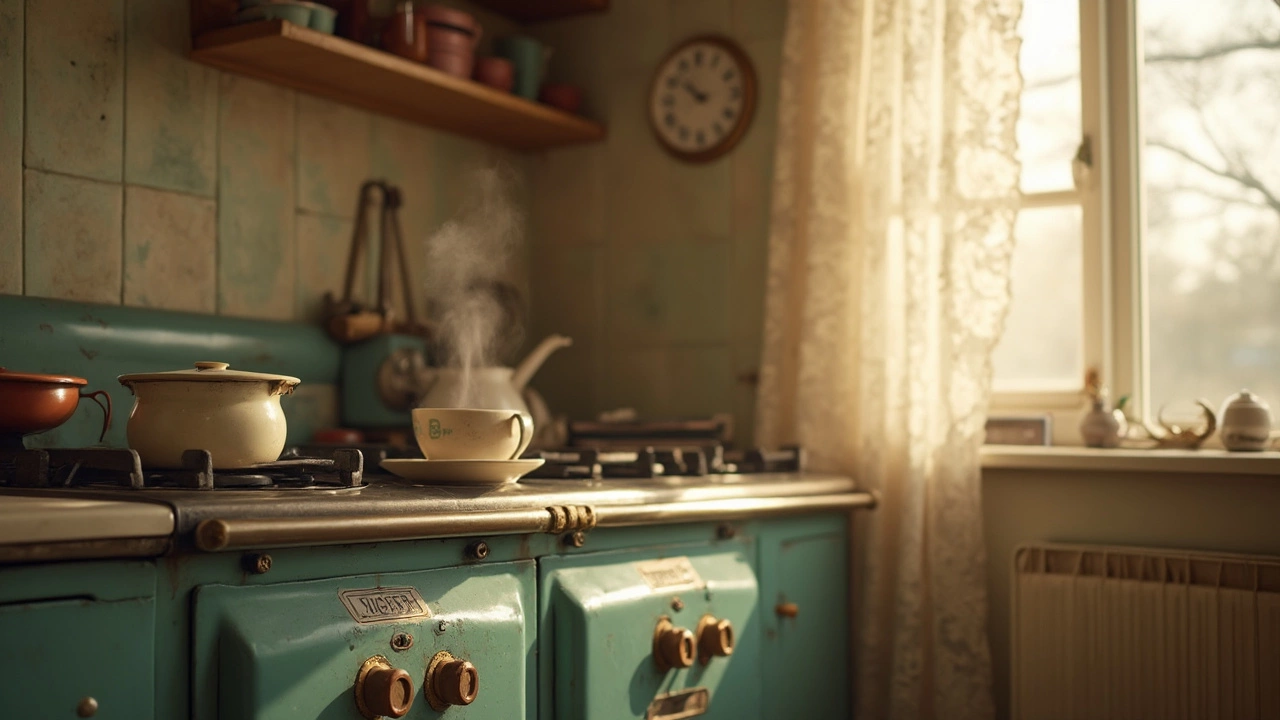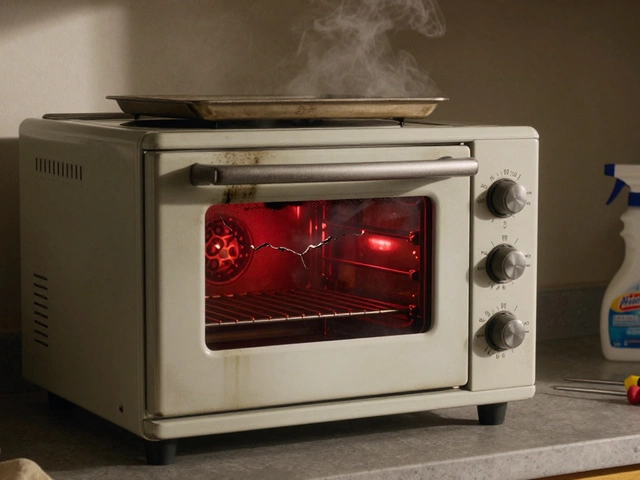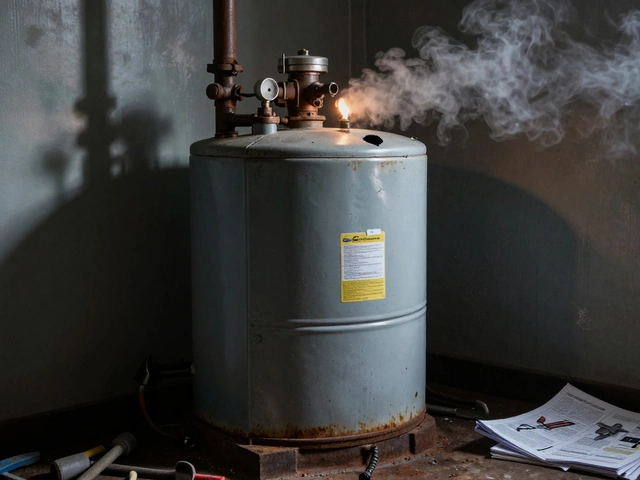You’ve just gone to make dinner and your cooker isn’t playing along. Maybe the gas won’t light, or the oven stays cold while your stomach isn’t getting any more patient. Cookers don’t last forever, and it’s not always easy to tell the difference between a minor hiccup and a full-on breakdown. Knowing what to look for can save you time, money, and a lot of burnt food.
Start by thinking about what’s changed. Is your cooker suddenly slow to heat up? Are the knobs loose or stuck? If things smell weird or you hear popping and banging that’s new, don’t ignore it. Appliances usually give out clues before they stop working completely. Spotting those clues early means you can avoid bigger, pricier issues later. If you’re seeing sparks or smelling gas, turn the cooker off straight away and don’t take any chances—it’s a safety thing, not just an inconvenience.
Most cookers come with their own set of common problems, like uneven heating or dodgy burners. Grab a notebook and jot down anything odd you notice—this will help you or a repair person fix things quicker. If you’re unsure what counts as serious, this guide will walk you through the most common red flags, ways to check them, and when it’s time to stop DIY and bring in an expert.
- Obvious Warning Signs Your Cooker Needs Attention
- Common Cooking Problems and What They Mean
- Strange Sounds and Smells: What’s Normal, What’s Not
- How to Check Each Part of Your Cooker
- Simple Fixes Before Calling in Help
- When to Get a Pro on the Case
Obvious Warning Signs Your Cooker Needs Attention
Your cooker will usually make it pretty clear when it’s having problems. The trick is not to brush off the warning signs, even if they seem small. Ignoring them just leads to bigger repair bills or, worse, a kitchen accident. Here’s what you need to watch for.
- Cooker repair issues often start with things like burners failing to light, or taking way longer than usual to heat up. This can be a clue something inside is either blocked, broken, or worn out.
- Uneven cooking is a classic red flag. If food on one side of your oven cooks faster than the other, your heating elements or gas supply might be struggling. This also wastes energy and throws off your recipes.
- Noises you can’t explain—popping, buzzing, constant clicking—are a sign that something’s up with electrical parts or gas flow. These sounds should never be ignored.
- Burning smells, chemical smells, or any whiff of gas should have you turning the cooker off straight away. Gas leaks or electrical burning could mean real danger.
- Obvious physical damage like cracked glass, broken dials, or loose wiring are not just cosmetic. They make your cooker unreliable and unsafe to use.
If you spot any of these, it pays to check out the issue before you power on for your next meal. Wondering how often these problems happen? Here’s a look at some common stats from UK home appliance surveys:
| Issue | % of Reported Cooker Problems |
|---|---|
| Burner Not Lighting | 32% |
| Uneven Cooking | 25% |
| Weird Smells or Smoke | 18% |
| No Power/Dead Cooker | 12% |
| Noisy Operation | 9% |
| Broken Controls or Displays | 4% |
Spot something from this list in your own kitchen? Best course of action is to stop using the cooker until you’ve found out what’s wrong or called in some backup. Safety beats speed every time when it comes to appliances that get hot or run on gas.
Common Cooking Problems and What They Mean
If your meals are turning out weird lately, your cooker could be to blame. Recognizing what’s normal and what’s a red flag can stop you wasting time (or ruining another pizza). Some problems scream for help; others quietly mess with your dinner until you notice the pattern. Here are some everyday issues you might spot, and what they usually mean:
- Uneven heating: If one side of your oven cooks faster or hotter, the heating element or fan might be failing. This happens a lot in both electric and gas cookers after heavy use.
- Burners won’t light or stay lit: A blocked burner, bad igniter, or dodgy connection can stop flames from starting. If it’s gas and you smell gas without ignition, stop right away for safety.
- Oven doesn’t reach temperature: If your cakes or roast never cook through, the thermostat could be faulty. Ovens losing heat can also mean a broken gasket (the rubber seal around the door).
- Electric cookers not heating up: This often points to a busted heating element. Sometimes, a tripped breaker or dodgy plug is the simple fix.
- Clicks, buzzes, or sparks: These noises mean something’s off in the wiring or the ignition system. Sparks are especially risky—switch everything off if you see them.
To break it down, here’s a quick cheat sheet on what each symptom might mean:
| Problem | Likely Cause | What to Do |
|---|---|---|
| Uneven Heating | Heating element or fan issue | Check with a different dish or tray in the oven; if still bad, consider repair |
| Gas Burner Won’t Light | Blocked port, igniter fault | Try cleaning burner; if still no spark or flame, call a pro |
| Oven Not Hot Enough | Bad thermostat, damaged seal | Check seal for gaps, test with thermometer; replace if needed |
| Electric Hob Doesn’t Heat | Busted element, electrical fault | Swap to a different socket; if it still doesn’t work, get an expert |
| Odd Noises or Sparks | Wiring or ignition problem | Stop using immediately, unplug, and get help |
If you spot one of these issues with your cooker repair, don’t just work around it for weeks on end. Small faults can turn into big problems fast. Always check for obvious stuff like crumbs blocking burners or loose knobs. For more technical issues, a quick call to a repair shop can save you from buying a whole new cooker sooner than you’d like.
Strange Sounds and Smells: What’s Normal, What’s Not
If your kitchen smells like burnt toast when nothing’s cooking, your cooker could have a problem. Let’s break down what’s typical and what’s cause for worry—you don’t want to shrug off a sign that says it’s time for cooker repair.
Most cookers hum or click a little during use, especially gas ones that need to ignite. A single click as you turn the knob—that’s normal. But if those clicking sounds keep going or turn into rapid ticking, the ignition might be stuck or faulty. If you hear loud bangs or popping, that’s a warning. It could mean a burner is blocked, gas is building up, or something’s not lighting right. Electric cookers shouldn’t buzz loudly, so if you hear crackling or buzzing from the back or under the stovetop, it could point to a wiring issue.
Smells can tell you just as much. You shouldn’t ever smell raw gas. If you do, turn off the cooker at once and open your windows. Gas leaks are dangerous—don’t try to fix it yourself. Even a faint eggy smell is a big red flag with gas cookers. For electrics, burnt plastic or a sharp chemical smell is a sign something’s overheating or melting, usually in the wiring or timer unit.
- If you hear a constant ticking sound, check the igniter or call for help.
- Loud banging or popping during cooking? Turn the cooker off and have a professional check it out.
- Any kind of gas smell means immediate attention—don’t wait.
- Odd burning smells from an electric cooker are not normal. Unplug it and have it looked at.
Sometimes, the cause is simple—spills under the hotplate or leftover crumbs in the oven. So before you panic, give everything a good clean and see if it stops. But don’t ignore new noises or smells just because it’s inconvenient. Catching these signs early can stop a small problem from turning into an expensive repair—or worse, a dangerous one.
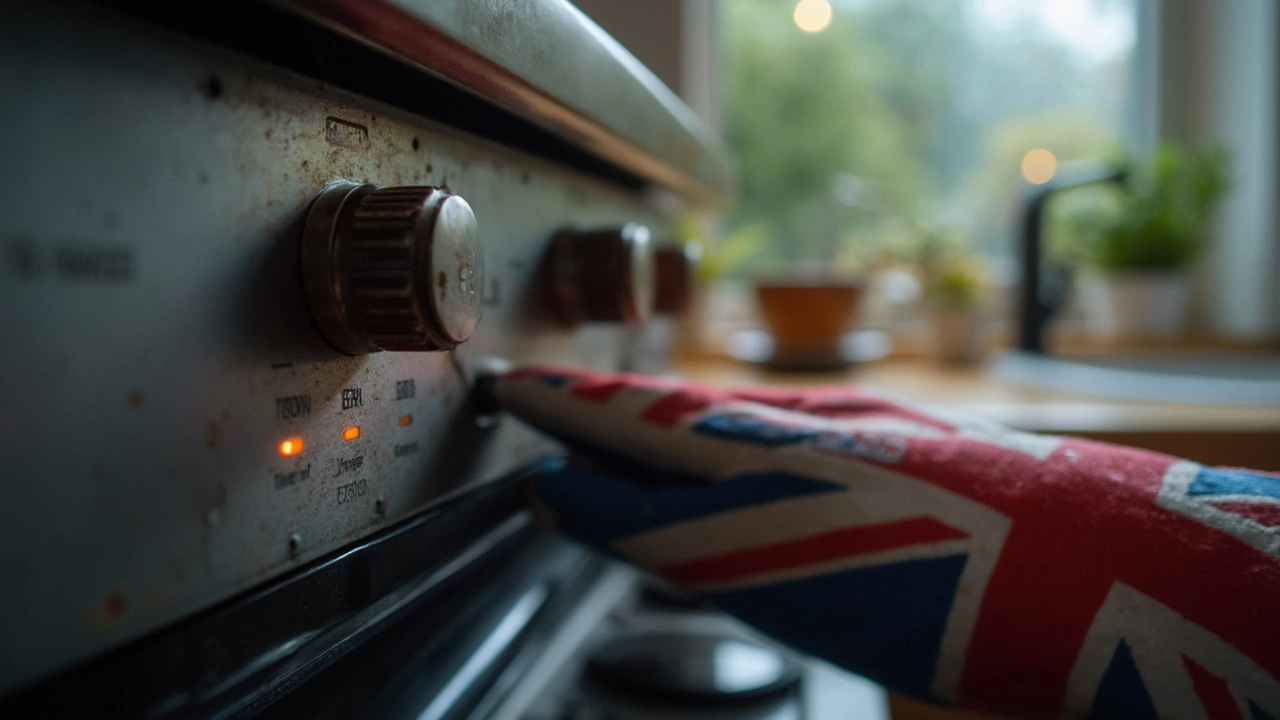
How to Check Each Part of Your Cooker
Before you go poking around, unplug an electric cooker or turn off the gas supply for a gas cooker. Safety first, always. Now, let’s break it down by parts, because figuring out which bit is acting up can help you get it sorted much faster.
- Burners/Hobs: If you’ve got a gas cooker, light each burner. A burner should spark up within a couple of seconds and burn with a steady blue flame. Orange or yellow? That’s a bad sign. For electric cookers, check each ring heats up when turned on. If some are cold, you may have a faulty element.
- Oven: Does the oven get up to heat and stay there? Use an oven thermometer if you have one—it’s a cheap way to check if the temperature matches the dial. Uneven browning or food taking double the usual time is a telltale sign of a problem.
- Grill: Try the grill for a few minutes. If it doesn’t heat, or heats only one side, the heating element might be done for. Gas grills should spark easily and stay lit.
- Control Panel & Knobs: Turn each knob. They should move smoothly and not feel loose or wobbly. If your cooker has a digital display and it’s flickering, skipping numbers, or won’t change at all, you’re likely dealing with a wiring or control board problem.
- Door Seals & Hinges: Open the oven door. Gently pull on the rubber seal around it. If it’s torn or falling off, heat will escape, making cooking times unpredictable. Hinges should be tight but not squeaky or sticking.
- Noises & Smells: Sniff around when the cooker is on. Odd smells (especially burning or strong gas) mean trouble. Any loud bangs, buzzing, or popping from inside means something’s not right.
Use this table as a quick cheat sheet for what common issues might point to:
| Part | Possible Problem | What to Check |
|---|---|---|
| Burners/Hobs | No flame, uneven heating, weird flame color | Check ignition, color, and gas flow or electricity supply |
| Oven | Won’t heat, temperature’s off, food not cooking evenly | Test with thermometer, check both elements (top and bottom) |
| Grill | Only half works, won’t turn on | Test both sides for heat, check for visible damage |
| Control Panel | Knobs loose, display won’t work | Test all functions, check for visible damage |
| Door Seals & Hinges | Heat escapes, door won’t shut | Inspect seal for gaps or tears, test hinge tension |
If you run through these checks and spot something off with your cooker repair checklist, you’re halfway to solving the problem. Some fixes are quick; others need a pro, but at least now you know where to start looking.
Simple Fixes Before Calling in Help
If your cooker’s acting up, don’t panic—most problems are actually easy to check yourself before you call a repair service. The trick is knowing what’s safe to try and what’s better left alone. Here’s a rundown of the most common things that can go wrong and what you can do about them.
- Check the power or gas connection: For electric cookers, make sure the socket’s switched on and the fuse hasn’t blown. Gas cookers need the valve to be open and, sometimes, the pilot light relit. Sounds basic, but a loose plug or switched-off gas valve trips up loads of people every year.
- Clean the burners and hob: Food drips and crumbs easily clog burner holes, meaning your cooker can act like it’s broken when it just needs a good scrub. A toothpick or old toothbrush can clear burner holes without damaging them. Make sure the parts are dry before piecing them together.
- Test the oven door seal: If oven heat is leaking, it might just be a torn or worn-out door seal. Run your finger around the seal. If it’s cracked or missing, replacements are cheap and take minutes to swap out.
- Control knobs stuck or loose? Sometimes, grease buildup or a minor knock causes knobs to stick. Pull off the knob, clean it, and push it back in place. If it’s wobbly, double-check the fitting or look for a new knob online.
- Timer or display not working? Check the manual for how to reset. Sometimes flipping the cooker off at the mains for a couple of minutes sorts digital glitches out.
Here’s a little cheat sheet showing how often these issues are the real culprit as seen by appliance repair techs in the UK:
| Problem | % Fixed Without Pro Help |
|---|---|
| Power/socket issues | 40% |
| Burner or hob obstructions | 30% |
| Door seal fixes | 10% |
| Knob or setting adjustments | 15% |
| Digital display glitches | 5% |
Think twice before you start undoing panels or poking tools into anything electrical. If these basic tips don’t work or you smell gas, see sparks, or your cooker trips the main fuse, quit while you’re ahead and get a professional—they’re worth the call for safety and peace of mind. For everyday cooker repair, though, these fixes save money and get your kitchen back in action faster than waiting for a service slot.
When to Get a Pro on the Case
Sometimes, fixing a cooker is just not a safe DIY job—especially when you’re dealing with gas, major electrical faults, or anything that smells like burning plastic. It’s not being overly cautious; it’s just common sense. Gas leaks, faulty wiring, and persistent error codes are real risks. If you mess with these, you might end up making things worse or risking your safety.
Here are clear-cut signs you should bring in a professional:
- You notice a gas smell (like rotten eggs) even with the cooker switched off—call emergency services before anything else.
- The cooker trips the circuit breaker or blows fuses repeatedly—don’t try to keep resetting, it’s a sign of deeper electrical trouble.
- Sparks, arcing, or visible burn marks around knobs, sockets, or elements. This isn’t normal wear and tear—stop using the cooker completely.
- No heat or wildly fluctuating temperatures (way too hot or too cold), especially with digital ovens showing fault codes.
- Touching metal parts gives you a shock, even once. That means there’s a grounding issue—super dangerous.
If your cooker is still under warranty, don’t attempt any repairs yourself. Most brands, like Hotpoint or Bosch, will void coverage if you start tampering. Instead, arrange for their authorized repair service.
"If you ever smell gas or see exposed wires, step away and call a qualified technician. Appliances are safer (and cheaper to fix) when issues are caught and handled by pros early.” — Electrical Safety First, UK charity for electrical safety.
Quick note: According to the UK Office for National Statistics in 2023, over 60% of household appliance fires started in the kitchen, often linked to faulty cookers or unqualified repairs. That makes professional intervention more than a nice extra—it’s vital.
| Problem | DIY? | Call a Pro? |
|---|---|---|
| Spark, burning smell, or visible damage | No | Yes |
| Frequent tripping of breaker | No | Yes |
| Gas smell (even faint) | No | Yes—immediately |
| Touching gives you a shock | No | Yes |
| Struggling to light or mild heat problems | Sometimes | If unsure |
If you tick any of the boxes above, let a cooker repair pro handle it. It pays to call early—not only for your safety, but also to potentially save your cooker from bigger damage later.
